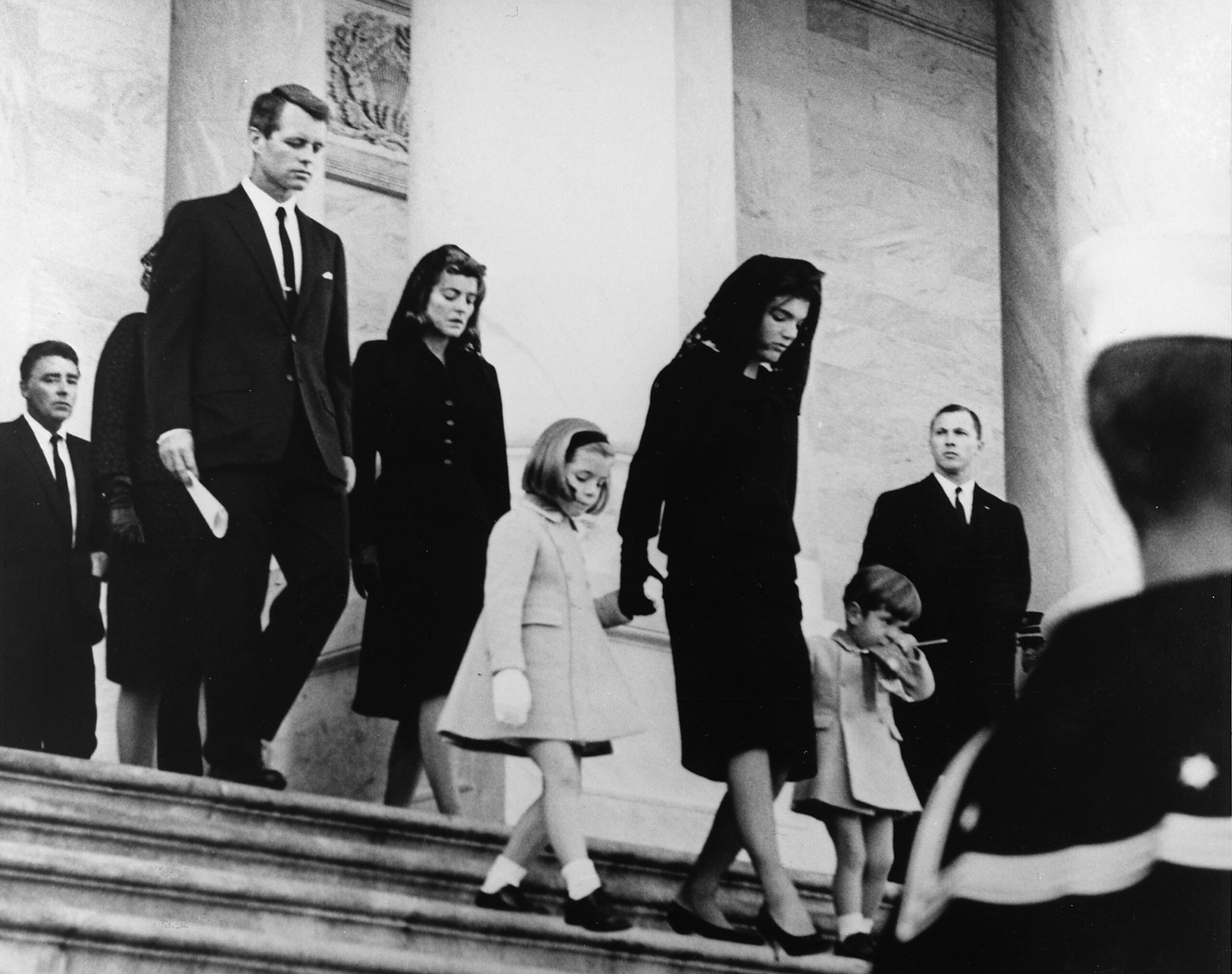APRIL 20, 2024 – The next family to move into the Perkins’ old house on Rice Street were the Tobins. Mr. Tobin was a traveling salesman of whom sightings were extremely rare. He drove the family’s nice car, I remember—a late model Mercury—while his easy-going wife Mickey was stuck with an ancient green Ford. I often thought, however, that for a family with six kids at least the car had four doors—unlike either one of our cars, until Dad bought a Buick sedan.
The Tobin kids included Jim, the oldest, then red-headed Nancy, who became good friends with my oldest sister Nina, who was the same age; then Jane, who was in Elsa’s grade and friend; red-headed Kathy, my sometime girlfriend for a year, even though she was a third grader when I was only a second grader; Patti, the third Tobin red-head, Jenny’s age and friend; followed by Cindy, the little kid with no match-up among us Nilssons. We saw a lot of the Tobins, at their house as well as at ours, and everywhere in between, but in the summers, they’d disappear for a week at a time to stay at their grandparents’ cabin on Battle Lake in northern Minnesota. It was on those occasions that Kathy and I exchanged letters. For kids our ages the length and frequency of our correspondence were rather remarkable.
On Monday November 25, 1963, our family joined the Tobins in their large, airy TV room to watch the funeral of JFK. Almost everyone had the day off—kids from school, the dads from work, but not the moms, of course—because of the National Day of Mourning. Our family didn’t own a television, so my oldest sister had arranged through Nancy Tobin to have us all invited down to the Tobin house to watch the entire morbid procession and funeral.
Mother and Dad had voted for Nixon, and in the run-up to the 1960 election, I followed my two older sisters marching around the house, chanting, “Nixon, Nixon, he’s our man, let’s put Kennedy in the garbage can.” Nevertheless, I don’t remember hearing my parents trash Kennedy after the election. It was an era when for the most part, people got behind the president, irrespective of party affiliation, especially in times of trouble, as was the case during the Cuban Missile Crisis.
Surprisingly, as between Mother and Dad, it was Dad who showed the greatest remorse and emotion over the assassination. The tragedy had a profound effect on me, as well, even though I was only nine. I remember retreating to my bedroom with the door shut while listening to unending radio reporting from Dallas. Engrossed, I was pacing the floor at the very moment a reporter described the shooting of Lee Harvey Oswald by Jack Ruby.
On the day of the funeral, I was too sad to want to watch the funeral. In our part of the world the temperature was cold enough for us to be wearing winter clothing outside, but the sun was shining, and I desperately wanted to be in the sun, which tempered the melancholy that seemed to hang over everyone and everything when I was inside the house. The lone sun-seeker, I was kicking around on the driveway and street when the rest of the family exited our house to head down to Tobins. When I held back, Dad called for me to catch up. I resisted until his second call reflected gathering impatience.
As the televised funeral procession got underway, my sadness increased. Ultimately, I felt overwhelmed by it. Jackie looked younger than Mother, and John John, younger than Jenny; even Caroline, I realized, was at least a couple of grades behind me. Now they’d lost their husband/Dad, and I couldn’t imagine carrying on under such circumstances. Plus, the whole country had lost its president. It was all too much for me to accept. I put my jacket back on, got up, and walked out of the house.
Before I’d gotten very far down the front steps of the Tobin house, Dad was in the doorway calling me back. He did little to comfort me. I could tell by his words that he didn’t understand what I was feeling. He thought I was uninterested in what was a moment of national unity the likes of which he hadn’t experienced since WW II. Even though I was only a fourth grader, by that time Dad had instilled in me an unusually deep sense of history, and I grasped full well the gravity of the occasion—and its tragic undertones and overtones. But I lacked the words to express the depth of my feelings. The best I could say in response to Dad’s summons was, “I don’t wanna.” I was relieved that he didn’t insist. Maybe, I thought, he was beginning to understand my inexpressible sorrow.
A few years later, the Tobins moved to LaCrosse. Our only connection after that was an annual exchange of Christmas cards, except Nina and Nancy corresponded regularly for many years thereafter, including after Tobins moved to Nashville. Nancy even visited us once back in Anoka and spoke with a Southern drawl, which we all wondered, Is that a genuinely acquired drawl or is she just pretending? I assumed Kathy had found another boyfriend, maybe several, but I couldn’t imagine her speaking with a Southern accent, affected or genuine.
Subscribe to this blog and receive notifications of new posts by email.
© 2024 by Eric Nilsson
